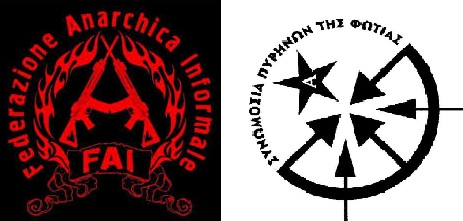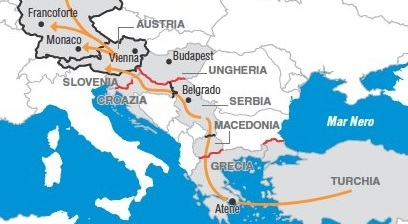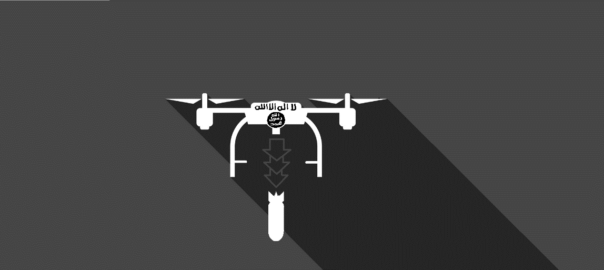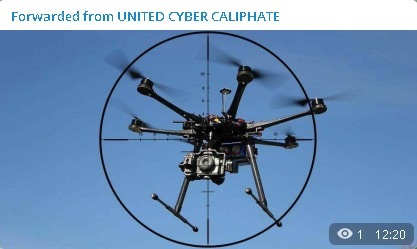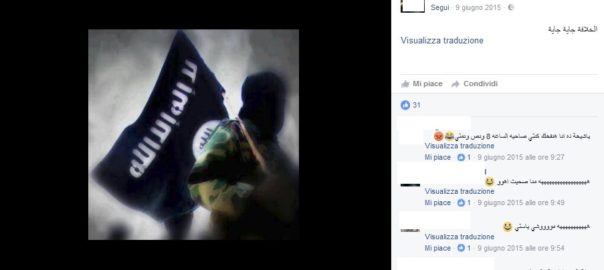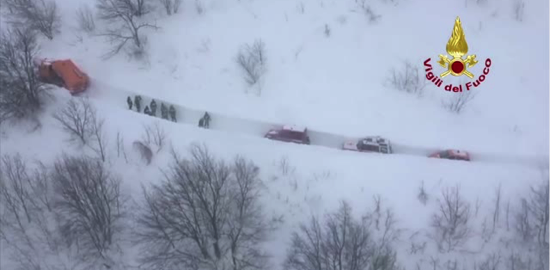March 15, 2017: a package with an explosive mechanism mailed from Greece and addressed to german minister Wolfgang Schäuble was detected by german authorities. The name of a prominent New Democracy (main opposition party) parliament member and ex-minister was written on the package as “sender”. The anarchist-extremist organization “Conspiracy of Cells of Fire” (CCF, in Greek: Συνωμοσία Πυρήνων της Φωτιάς, ΣΠΦ) claimed responsibility of the operation and while it did not yet issued a manifesto, it published the following short text in an antiestablishment website[1]: Continue reading
All posts by Marco Lombardi
Attacco all’aeroporto di Orly: terroristi e mentecatti pongono un problema all’Islam – by Marco Lombardi
L’attacco di oggi a Orly interroga soprattutto il mondo musulmano. Parte del 2016 e questo avvio del 2017 è punteggiato di attacchi, soprattutto nei paesi dell’Europa centrale, che si fatica a capire quanto siano di terrorismo connesso al Daesh. Continue reading
Turbolenze balcaniche e spinte turche in salsa jihadista – by Giovanni Giacalone
L’area balcanica continua ad essere al centro di forti tensioni etniche che rischiano di venire a loro volta strumentalizzate da strategie internazionali che vedono nella Turchia di Erdogan un possibile regista. Ma andiamo con ordine e partiamo da qualche dinamica interna ad alcuni Paesi balcanici che stanno attraversando fasi non proprio semplici. Continue reading
La minaccia dei Droni di Daesh: tra propaganda e realtà – by Gaia Rossi
La propaganda di Daesh sui droni continua. ITSTIME ha già ospitato diversi commenti in merito all’interesse di Daesh per gli UAVs (droni radiocomandati), in seguito al ritrovamento di alcuni documenti in Iraq risalenti al 2015 e agli alert lanciati dalle testate giornalistiche, su potenziali minacce “derivanti dal cielo”. Continue reading
Un nuovo gruppo jihadista: Hayat Tahrir al-Sham (HTS) – by Giovanni Giacalone e Nicolò Spagna
Il 28 gennaio 2017 veniva formato in Siria un nuovo gruppo jihadista, ideologicamente di matrice salafita, denominato “Hayyat Tahrir al-Sham” (HTS) (Movimento di Liberazione del Levante). Continue reading
Droni: quale pericolo per le città? – by Nicolò Spagna
Esperti di counter-terrorism, servizi di sicurezza e think tank, anche se spesso non così apertamente, hanno sempre dibattuto sulla concreta possibilità di un attacco da parte del sedicente ISIS con elementi riconducibili alle armi CBRN[1]. Continue reading
Propaganda online e digital humint: il caso di Facebook – by Giovanni Giacalone e Nicolò Spagna
La propaganda jihadista corre sul web, questo è un dato di fatto da tempo noto. Spotter, propagandisti e reclutatori utilizzano Internet come uno dei canali privilegiati per trovare potenziali proseliti da convertire all’ideologia del terrore, muovendosi sia “in chiaro” con profili fake su forum e social network che nel cosiddetto “deep web”, zona oscura non raggiungibile attraverso i tradizionali motori di ricerca e che permette lo scambio di informazioni e contenuti soltanto a chi sa utilizzarla. Continue reading
Daesh: nuovi documenti sulla metodicità dell’utilizzo dei Droni – by Gabriele Mori
La capacità organizzativa di Daesh continua a sorprendere, ma non ci stupisce. Sono stati ritrovati in Iraq dei documenti estremamente dettagliati, che sembrano risalire al 2015, inerenti l’uso di UAVs (droni radiocomandabili). Continue reading
Daesh è esperto di Droni…ma ancor più di comunicazione! – by Gabriele Mori
Daesh (ISIS) continua a mostrarsi – e a volersi mostrare! – tecnologicamente aggiornato e capace nell’uso degli UAVs (Uninhabited Aerial Vehicles), più comunemente noti come droni radiocomandati. Continue reading
Rigopiano, Diga a Campotosto e la gestione vulnerabile dell’emergenza in Italia – by Barbara Lucini
Si era già scritto delle mancanze e delle crescenti vulnerabilità della gestione della valanga che ha distrutto l’Hotel Rigopiano, causando molti morti. Vulnerabilità che non sono uniche o tipiche dell’Hotel colpito o della neve caduta copiosamente, meglio sono esiti, talvolta effetti indesiderati di un sistema di previsione, prevenzione e gestione che ha smesso di funzionare su più fronti: Continue reading
Terremoto e Neve all’Hotel Rigopiano: dalla resilienza ai disastri alla resistenza alle catastrofi – by Barbara Lucini
Quanto accaduto all’Hotel Rigopiano due giorni fa porta necessariamente con sé, una riflessione circa la gestione dell’emergenza e la così tanto nominata “resilienza”. Continue reading

